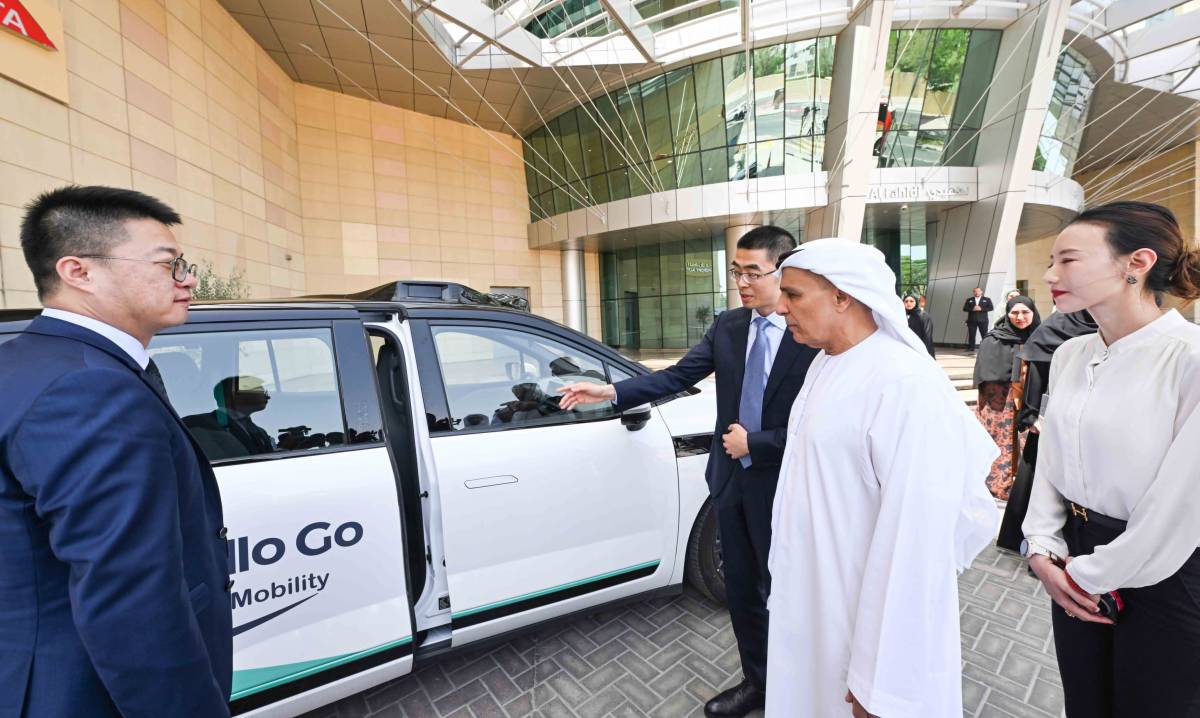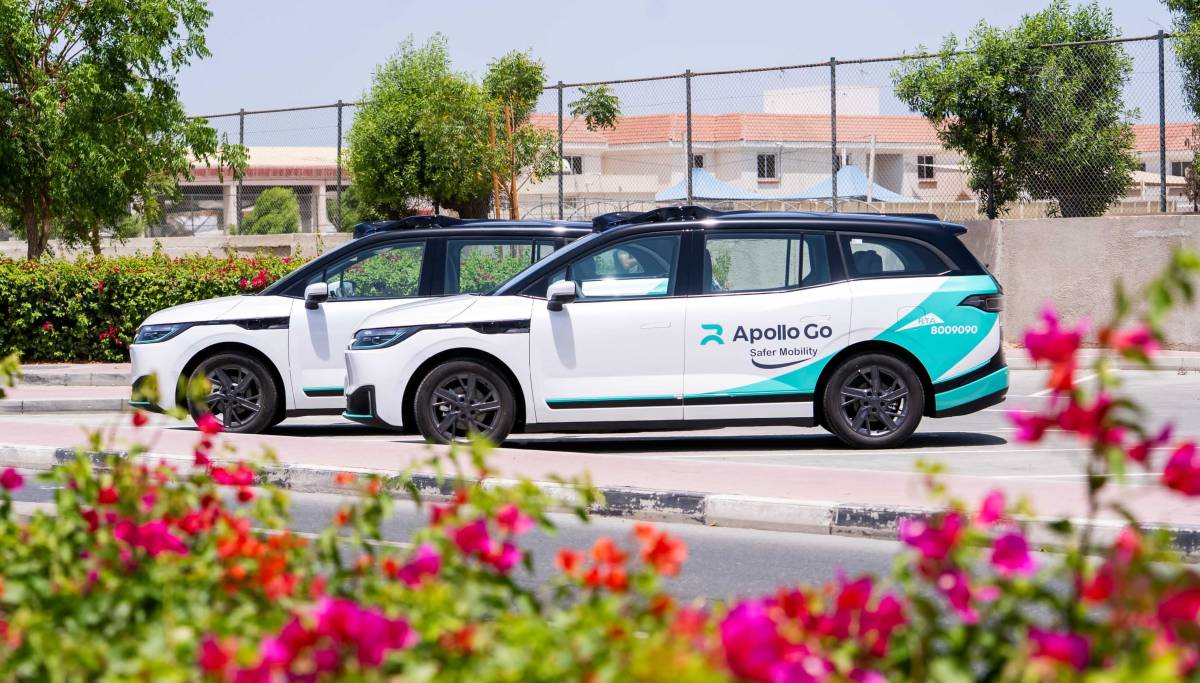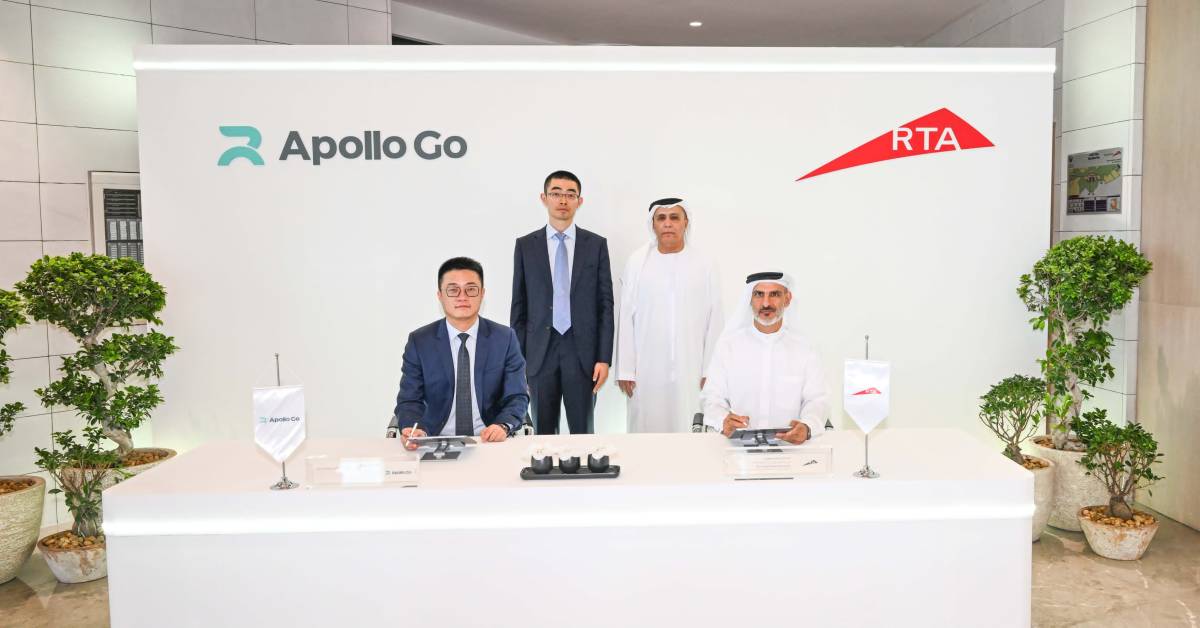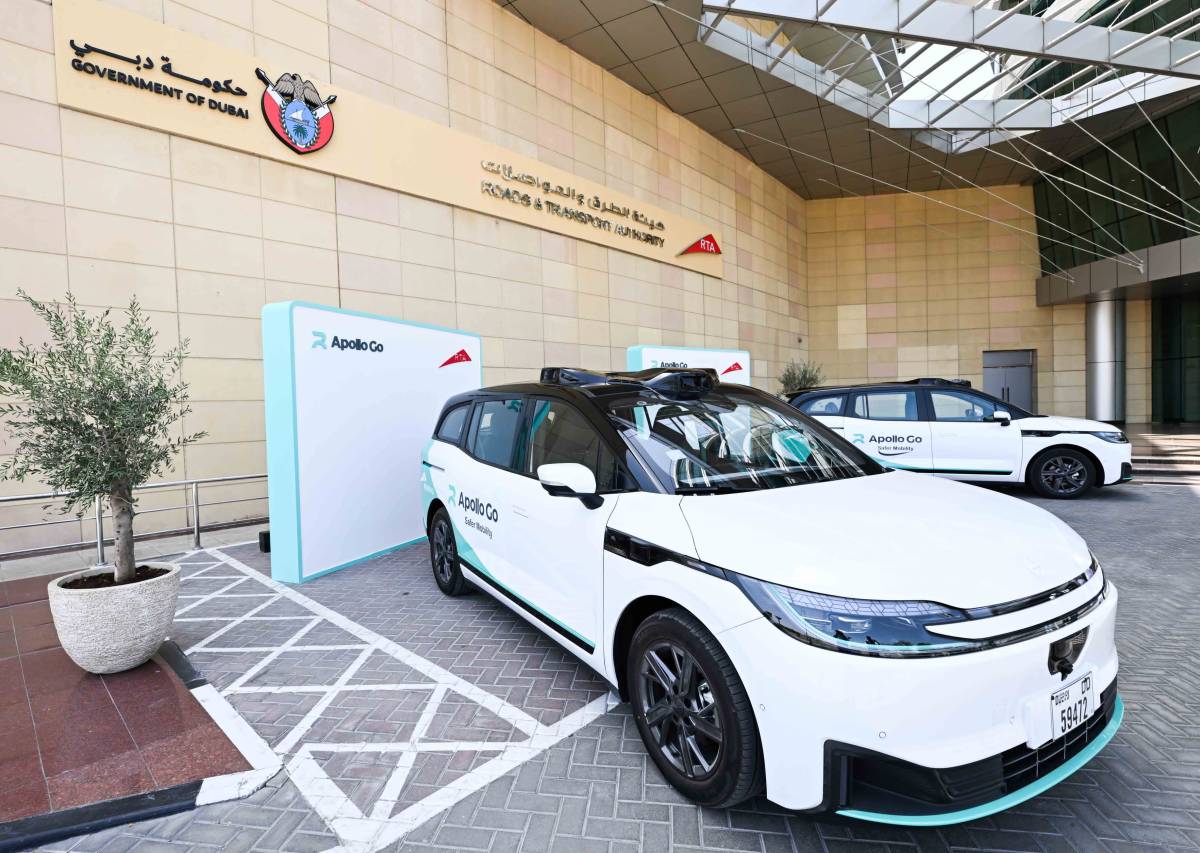Dubai: RTA and Baidu partner for self-driving taxi trials (VIDEO)
Apollo Go to deploy 1,000 driverless cabs across the city by 2028

Dubai's Roads and Transport Authority (RTA) has entered into a landmark partnership with Baidu’s autonomous ride-hailing arm, Apollo Go, to initiate the operational testing of self-driving taxis across the emirate starting in 2025.
The agreement sets the stage for full-scale deployment in 2026, eventually scaling to a fleet of 1,000 autonomous vehicles within three years.
The collaboration signals a significant step in transforming Dubai’s urban mobility landscape through next-generation transport technology.
Apollo Go in Dubai
Under the signed Memorandum of Understanding (MoU), Apollo Go will introduce its sixth-generation autonomous vehicle model, the RT6, specifically tailored for driverless taxi services. This advanced vehicle is equipped with 40 integrated sensors and detectors, designed to ensure high levels of automation, safety, and passenger experience.

Initial trials will begin with 50 autonomous taxis operating in designated zones, contributing to data collection and service validation. The service will then expand based on performance metrics and public feedback, reaching a projected fleet size of 1,000 by 2028. The RT6 model has already proven successful in China, where Apollo Go leads the world in autonomous mobility operations.
The agreement marks Apollo Go’s first international foray beyond mainland China and Hong Kong, positioning Dubai as the launchpad for its global expansion. The service, when fully operational, will bring cutting-edge autonomous transport to residents and visitors alike.
Baidu and RTA’s partnership
Baidu’s autonomous vehicles have already travelled over 150 million kilometres across multiple Chinese cities, completing more than 10 million autonomous trips. These achievements make Apollo Go the largest operator of autonomous fleets worldwide, with ongoing projects in cities such as Beijing, Wuhan, and Shenzhen.

RTA Director General Mattar Al Tayer highlighted the strategic importance of this agreement, emphasising its alignment with Dubai’s Smart Self-Driving Transport Strategy. The strategy aims to convert 25 percent of all trips within the city to autonomous journeys by 2030. He stressed the significance of partnering with global leaders to accelerate the adoption of sustainable and innovative mobility systems.
Al Tayer noted that since 2016, RTA has conducted various operational trials of autonomous vehicles, and this latest agreement builds on the emirate’s track record of embracing disruptive transport technology.
Innovative technology
Apollo Go's RT6 is the result of years of innovation in artificial intelligence, big data integration, and smart city solutions. The RT6 is built to operate in complex urban environments, navigating real-time road conditions without human intervention.

Halton Niu, General Manager of Overseas Business at Baidu’s Intelligent Driving Group, stated that the partnership with Dubai reflects the city’s readiness to adopt advanced mobility frameworks. “By working closely with local partners, we aim to bring sustainable, smart mobility to more communities worldwide,” he said.
Liang Zhang, General Manager of Overseas Business for the MENA region, added that this marks the most significant expansion for Apollo Go outside of China. “Dubai’s commitment to innovation makes it an ideal partner as we grow our global footprint,” he noted.
Traffic safety
Ahmed Hashim Bahrozyan, CEO of RTA’s Public Transport Agency, signed the MoU on behalf of the RTA, while Baidu was represented by Liang Zhang. Bahrozyan underscored the broader impact of self-driving technologies on public welfare and urban mobility.
He remarked that autonomous taxis will offer greater independence to those unable to drive, such as the elderly and children, while also significantly enhancing road safety. He highlighted that the technology promises a reduction in traffic accidents, lower emissions, and optimised travel time – key metrics in evaluating future mobility solutions.
“The MoU plays a vital role in knowledge exchange and technical development for autonomous transport in Dubai,” Bahrozyan said. “It will guide the roadmap for field trials and operational deployment of driverless taxis across the emirate.”